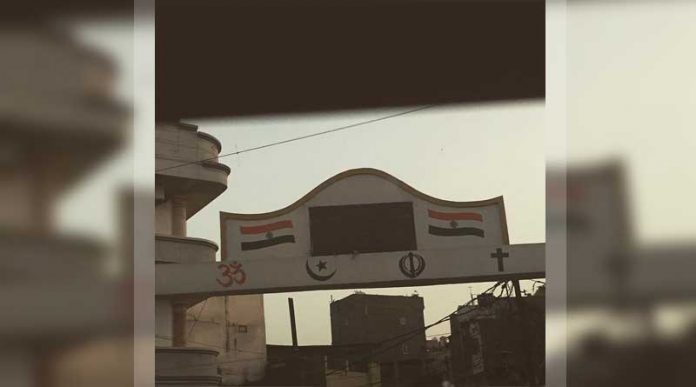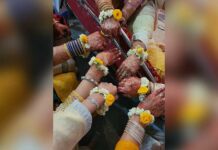Another sixth December goes by
My country is still in one piece
It stands there like a stump of an old tree
Breathing deep breaths of non-existence
For people who know the country, “unity in diversity” is a bittersweet taunt. The world has often described India as land strife with organic diversity. It has also marveled at the seemingly improbable harmony that engulfs the country.
But what happens within a home is seldom known to those out on the streets.
There are – or at least have been – one too many caveats to this perceived magnificence.
1992 is a sinister secret most righteous Indians would liked to have kept.
***
The worst part is that it does not take him more than a few minutes to recount every last morsel of the unfathomable hostility. These wounds of memory are the most incorrigible of all and they are kept fresher still by, most often, involuntary recollection.
Those that say “time heals all wounds” have never been truly hurt.
It was as if India had been rewired on Dec. 6 of that year.
Like a perfectly wearable sweater was torn apart to the last thread, and the yarn was buried somewhere deep in the earth where no one would ever find it again. Better yet, it was burnt.
***
“Tring…tring…tring,” gruntled the landline.
“Hello?”
“It’s all up in flames.”
“What is?”
“The entire city.”
He put down the receiver because putting it down was the first step to whatever would come next. Then, nothing but anxiety remained. He was 27. He was the eldest son. He seemed to solve everything. He should have been able to do something to fix this too. But it was clear, even to him, this was bigger than anyone. With the demolition of the Babri Mosque in Ayodhya, the fabric of communal tension was made so taut that a tear was, at best, inevitable. One phone call followed another and then another. The riots had started in Barkheda, but they would soon take over the whole town. Even in a time of limited communication technology, everyone knew something was up. Much like sacrificial animals, no one knew what was to come – but they knew it was not good.
***
The next organic step was to move closer to more family, to feel a little less alone and vulnerable.
His parents and four younger brothers would go to Chacha Sahab’s. He locked the house behind them. There was no time to waste. The phone lines had soon stopped working.
Even if the increased number of people in the house would not guarantee safety, at least they would know how many of them were dead or alive. There was less uncertainty this way.
There were two other uncles in the same city, and they needed to be contacted. Chacha Jaan lived close by, but he had relatives of his wife come stay with him. Chacha Jaan decided to stay at his own house and assured them he would be fine. Given the circumstances that night and in the days to come, that assurance could not have been rightfully given by anyone.
He did not know how, or even where, Chacha Huzoor was. No one did. The worrying detail, most of all, was that this uncle of his had three daughters. Three young daughters in aggressively inhuman times like these made one all the more vulnerable to the ubiquitous monstrosity.
On Dec. 10, 1992, matters were handed over to the military. Orders to shoot at sight were administered, which brought upon a newfangled wave of notoriety.
He still needed to, at best, bring Chacha Huzoor to the house they were all staying in. At worst, they needed to know if he was even alive. He set out in a Jeep towards Chacha Huzoor’s house, hoodwinking danger and trouble by slim margins in the cold dark hours of the night. He had imagined the worst the entire way, but upon finding Chachu Huzoor safe at home, he was able to breathe a tad bit better. Once Chacha Huzoor’s family had frantically settled in the back of the Jeep, he carefully drove back home.
Just as he pulled into the driveway, a military truck passed the street.
If they had been on the street the same time as the truck, no one would reach home that night. A few seconds was all that separated them from death – or worse – that night.
***
In Saket Nagar alone, where they lived, at least 17-18 people were killed. A couple was burned alive. Several were lynched in the streets. He says he could see the houses burning at the horizon from afar – their structures barely hanging onto life. They could see dense, grey clouds of smoke rising from the destruction. It was not just buildings that had been burned to the ground, it was also the lives of those that had been living in them. Women, children, and the elderly were mere conquests to those who had forgotten they were meant to be beings with a concrete conscience.
In the years to come, those that had been the drivers of the riots, were tried in courts as criminals. A move that took the accused by surprise. They had considered the government to be one of their own, based on the only way they knew to differentiate people as ‘ours’ and ‘not ours.’ The government, they thought, was theirs. To think of what this unfounded hate did to so many. To think of what generation sowed what seeds, and what generation to come shall be forced to reap the fruits. And worst of all, to think that perhaps history is beginning to repeat itself.
What he remembers most prominently is the way they clanked their swords on the streets late at night. They claimed it was to maintain safety and dissipate any intimations of conflict. No sword has ever helped keep violence at bay, they ought to have known.


















